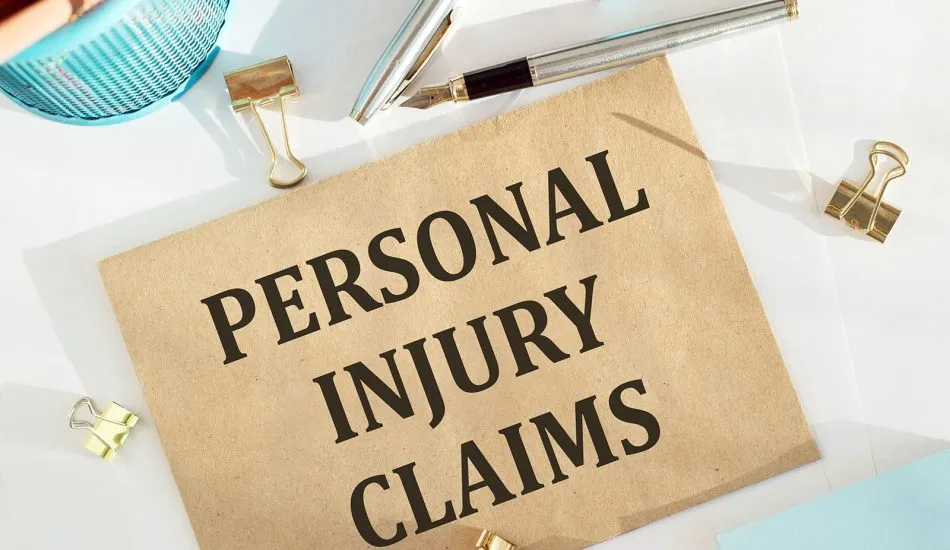After a personal injury accident, prioritize your health by seeking medical attention. Then, work with an experienced attorney for assistance in building your case.
5 Things to Do After a Personal Injury Accident

What should you do after a personal injury accident occurs? The next steps you take are important, not only for your recovery but also if you decide to move forward with a legal case. The reality is that you need to be focusing on your medical treatments, but personal injury claims also require documentation, paperwork, and evidence so you can receive compensation for your injuries.
One of the biggest mistakes you can make it failing to take legal action – or waiting too long before you start taking action. The longer you wait, the more difficult it is to prove the claim. As a result, you will likely receive reduced compensation if you procrastinate the decision to call a personal injury lawyer.
So, if you or a loved one has recently been hurt, then it’s essential to follow these steps after a personal injury accident.
Step 1: Prioritize Your Medical Care
The highest priority is seeking medical care after an accident. When you have injuries, then you need to visit an emergency room and/or doctor immediately for diagnostics and treatment. Even if you don’t feel like you have serious injuries, it’s possible that the shock and adrenaline from the accident are masking your pain. So, the best thing you can do is seek an evaluation right away. The reality is that delayed symptoms are quite common after traumatic accidents.
If injuries are present and you delay treatment, then there could be potential long-term health consequences. The best solution is to seek medical care immediately to minimize the risk of complications and serious issues in the future.
Not only will you receive the medical care that you need, but a visit for evaluation and treatment is also important so you can get medical documentation – which will need to be provided to the insurance company after the accident.
Step 2: Reporting the Accident to the Police
Pick up the phone and call the authorities right away. This report will bring a medical team to the accident scene, which is critical for treating immediate injuries if necessary. Additionally, you need to have a police report filed so that it can be used as part of your case when submitting a request to the insurance company.
The actual reporting process depends on the type of personal injury accident that occurred. For example, if it is a car accident, then you should call the police. If it is a workplace accident or a slip and fall at a business, then the company likely has a formal process for filing the report.
Always provide as much information as possible in the report. Also, keep copies of everything so that you have the information to share with your personal injury attorney when you are building your case.
Important: When you are filing the report, NEVER admit fault or discuss the details of the accident with the other people involved. It’s best not to say much, because anything that you say could be used against you in the insurance settlement process. Collect the information without sharing too much information with the other person. Then, let your attorney do the talking as you are negotiating and building the case.
Step 3: Document the Accident Scene
If you are physically able, then try to document the accident scene before leaving. Gathering evidence is important for building your case. If you are unable to document it, then ask a witness or another person to assist. Always err on the side of too much evidence for your injury accident documentation, because your personal injury attorney will be able to sort through the information to determine the most applicable documents to include.
Take photos and videos of the area, including injuries, the vehicles, road conditions, and anything else that is relevant. Write notes about things that can’t be captured in a photo or video, including information about the time of day, weather conditions, location, and more. Keep copies of any documents that are provided to you, such as the reports, insurance cards, etc.
Also, make sure that you collect contact information from the involved parties as well as witness information after the accident. It’s a good idea to write down the police report number and the officer’s name.
Step 4: Hire a Personal Injury Attorney
The benefits of legal advice are undeniable. An experienced attorney will be able to help you build a case and maximize the potential compensation you will receive. Look for an attorney who specializes in personal injury accidents. Ask questions about the types of cases they have handled in the past.
Rest assured knowing that you won’t have to pay a dime upfront. In fact, most personal injury attorneys work on a contingency basis, which means they will be paid a percentage of your compensation.
Step 5: Notify Your Insurance Company
Even though personal injury claims are paid by the person at fault (and their insurance company), you still want to let your insurance company know about the personal injury accident. Be truthful about what you share with any insurance company you are talking to, and always be forthcoming in the information that you provide.
During these conversations, it can be helpful to have your attorney involved in the discussion. You will be advised to stick to the facts – avoid speculation or opinion.
Most Common Types of Personal Injury Cases
There are many different types of personal injury claims, including:
- Car accidents
- Slip and fall accidents
- Medical malpractice
- Product liability
- Workplace accidents
- Assault and trauma
If you have experienced any of these, then call a personal injury attorney right away.
FAQ
If you need help with your case, then call our professional team at Gainsburgh, Benjamin, David, Meunier & Warshauer, L.L.C. We are always here to assist: (504) 522-2304.




